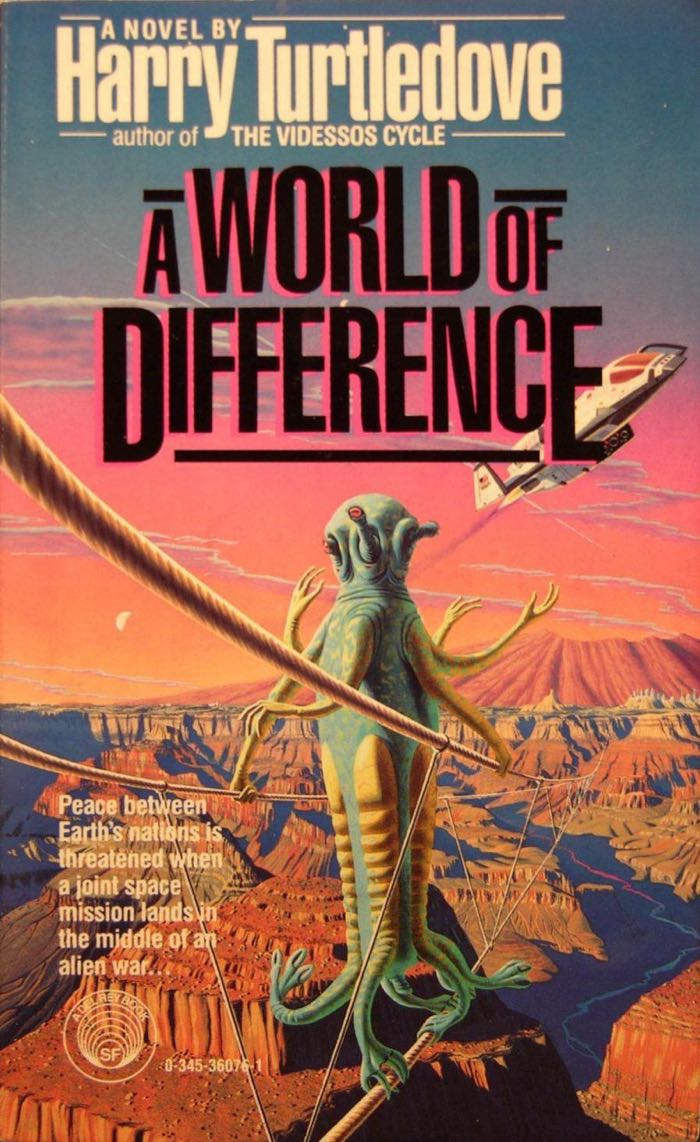A World of Difference
Reviewed date: 2004 Jan 11
Rating: 3
308 pages
Mars is boring. Turns out it's too damn small. But what if it weren't...
Minerva is the fourth planet out from the sun in the solar system, the first planet past Earth's orbit. At its nearest approach to Earth, Minerva is the brightest object in the sky except for the sun and moon.
Mr. Turtledove's alternate universe novel where Minerva replaces Mars is a Cold War story, pitting a Soviet mission to Minerva against the American mission. Both teams land and make contact with Minervan natives (learning the language with relative ease, but not without some mistakes, I'm happy to say). The natives are interesting in their differences from Earth creatures--Minervans are not bilaterally symmetrical, for one thing. Their six-sided symmetry--they have six legs, six arms, and six eye-stalks spaced equally around their bodies--render such human concepts as front, back, and behind as unimportant. Not just unimportant--such concepts are literally unthinkable--at least until the Minervans meet the strange humans who cannot see all ways at once.
The story is good. The Soviets are portrayed sympathetically, which is a plus. They are scientists, after all, not crazed military men. Same thing for the American crew. My main complaint is the Mr. Turtledove didn't really think through the ramifications of the Minervans' body structure. A being that can see in all directions at once, and that has six arms and six legs, all equally spaced, would have an entirely different outlook on the world. The Minervans acted too much like humans, save for a few minor issues such as counting by eighteens (they have six hands each with 3 fingers, for a total of 18.) And another thing: there was no mention of religion. Surely a primitive Minervan culture would have some religion. Why weren't the humans viewed as gods? Or possibly as demons? If the Minervans had no religion, at least someone on the expedition should have noted that odd fact.
Other than that, it is a competent and interesting book. Not great, but I do recommend it.
